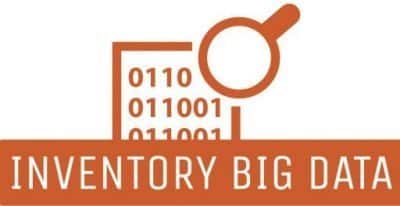Description
Meet Harry
Harry is an inventory manager. He has several tasks. His main focus remains monitoring and reporting on his company’s stock levels.
What data does an inventory manager manage?
An inventory manager, similar to a storekeeper, is responsible for overseeing various data related to the management of inventory in a warehouse or storage facility. This typically includes:
- Inventory levels: Tracking quantities of each item, their storage locations, and their expiry dates if relevant.
- Supplier information: Managing data about the suppliers including contact details and the products they supply.
- Purchasing data: Recording details about purchases such as quantities, costs, and delivery dates.
- Sales and distribution data: Monitoring items sold, the prices, and the sales dates, along with distribution logistics.
- Financial data: Overseeing financial aspects such as revenue from sales, operational expenses, and profit margins.
- Employee information: Managing details about warehouse staff including roles, performance, and schedules.
Additionally, inventory managers are tasked with optimizing stock levels, ensuring accurate order fulfillment, and maintaining a streamlined supply chain.
What risks?
The role of an inventory manager involves several risks:
- Stock discrepancies: Risks of loss, damage, or theft of inventory.
- Data inaccuracies: Mismanagement of inventory data can lead to operational inefficiencies and financial losses.
- Safety concerns: Potential hazards in handling materials, particularly if they are heavy or dangerous.
- Customer relations: Challenges in managing customer expectations and resolving complaints effectively.
- Cybersecurity threats: Risks related to the security of sensitive data from cyber-attacks.
- Compliance issues: Ensuring all operations adhere to legal and regulatory standards.
- Technology failures: Reliance on IT systems that, if fail, can disrupt inventory management processes.
Proactive risk management is crucial for maintaining efficient operations and safeguarding the organization’s assets.
What certification?
While not mandatory, certifications can enhance an inventory manager’s skills and career prospects:
- Certified Supply Chain Professional (CSCP) from ASCM: Focused on comprehensive supply chain knowledge.
- Certified in Production and Inventory Management (CPIM) from APICS: Specializes in inventory management and production planning.
- Certified Purchasing Manager (CPM) from ISM: For expertise in procurement and supply management.
- Six Sigma Certification: Enhances skills in process improvement and efficiency.
- Certificate in Supply Chain Management: Provides foundational supply chain knowledge.
Pursuing these certifications can help inventory managers improve their competencies and effectiveness.
Data analysis for improved raw material management
Harry: Hi Linda, I’ve noticed some irregularities in our raw material stocks. Can you check what’s happening?
Linda (Procurement Manager): Sure, Harry. It appears demand spikes have caused these discrepancies.
Harry: Is there a way to better predict these spikes to manage our materials effectively?
Linda: Implementing a data-driven approach using Material Requirements Planning (MRP) could help us forecast and plan more accurately.
Harry: Can you explain how MRP would benefit us?
Linda: MRP calculates the needed raw materials based on predicted product demand, taking into account existing stock levels and supplier lead times. It ensures we have sufficient materials without overstocking.
Harry: Implementing MRP sounds like a solid strategy to optimize our material usage.
Linda: Absolutely, it will enable us to align our procurement with production needs more efficiently.
KPIs for an inventory manager
Effective KPIs for an inventory manager might include:
- Inventory accuracy: Ensuring all stock data reflects actual inventory levels.
- Order fulfillment efficiency: Measures the promptness and accuracy of order processing and delivery.
- Customer satisfaction: Assessed through service quality and complaint resolution.
- Inventory turnover: Evaluates how frequently inventory is sold and replaced.
- Cost management: Monitors the cost-effectiveness of inventory management processes.
Regular monitoring of these KPIs helps in maintaining high operational standards and meeting business objectives.
Roles of Data for a Inventory Manager
As an inventory manager in an industrial company, data plays a crucial role in your daily operations. Here are some of the ways in which data impacts your role:
- Tracking Inventory: Data helps you keep track of inventory levels, including the amount of stock on hand, stock that has been used, and stock that needs to be ordered. This information allows you to maintain optimal inventory levels to prevent stockouts or overstocking.
- Forecasting Demand: By analyzing historical sales data, you can forecast future demand for your products. This information helps you plan for future production runs and order the appropriate amount of raw materials.
- Supplier Management: Data helps you manage your relationships with suppliers by providing information on delivery times, lead times, and product quality. This information enables you to negotiate better prices and delivery terms with suppliers.
- Cost Control: Data can help you identify areas where you can cut costs in your inventory management process. For example, by tracking the time it takes to process orders, you can identify inefficiencies and streamline your operations.
- Risk Management: Data can help you identify potential risks in your inventory management process. For example, by monitoring the age of your inventory, you can identify slow-moving items that may need to be marked down or liquidated.
Overall, data is a critical component of effective inventory management in an industrial company. By leveraging data, you can make informed decisions that optimize your inventory levels, reduce costs, and mitigate risks.




